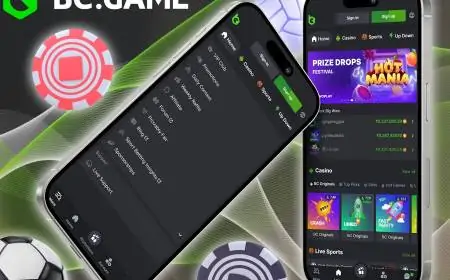In the digital age, social media shapes how we communicate and engage with various forms of entertainment, including online gaming. As of 2024, it is estimated that India has approximately 568 million gamers and social media plays a huge role in it. The combination of social media and online gaming apps has created a space where players, developers, and marketers interact in a multifaceted environment.
Let’s explore the profound impact social media has had on online gaming apps, focusing on how it has transformed user experience, marketing strategies, and community building.
-
User Experience
Integrating social media into online gaming apps has revolutionized the user experience. Games are no longer solitary pursuits but social experiences that connect players across the globe. Features such as leaderboards, live streaming, and in-game chat systems are commonplace, fostering a sense of community and competition. Players share their achievements, strategies, and in-game content, blurring the lines between gaming and social networking.
One notable example is rummy games which can be downloaded via online rummy game APKs, where users can download and play rummy with friends or strangers. The app's social features encourage players to invite others, share their scores on social media, and participate in tournaments, which enhances user engagement and retention.
-
Social Features and Interactivity
Social features within games enable players to interact in real time, creating a more engaging and immersive experience. For instance, multiplayer games allow players to team up or compete against each other, with social media integration providing platforms to share gameplay highlights. In-game chat systems, voice communication, and instant messaging further enhance these interactions.
-
Enhanced Player Connectivity
Games like Fortnite, PUBG, and rummy games like Taj Rummy, RummyCultutre, and PlayShip, offer features that allow users to invite friends, join clans, and participate in global tournaments. These connections are often made through social media, where players can post invites, share scores, and even broadcast live gameplay sessions.
-
Live Streaming and Content Sharing
The rise of live-streaming platforms such as Twitch, YouTube Gaming, and Facebook Gaming has further cemented the social aspect of gaming. Players can broadcast their gameplay live, interact with viewers in real time, and build a community of followers. This trend has created a new form of entertainment where viewers watch skilled players, learn new strategies, and engage in discussions.
-
Marketing: Leveraging Social Networks
Social media has become an invaluable tool for marketing online gaming apps. Platforms like Facebook, Twitter, and Instagram offer targeted advertising options that allow developers to reach potential players based on their interests, behaviors, and connections. Influencer marketing, where popular social media personalities endorse games, has also proven to be an effective strategy.
-
Influencer Partnerships and Authentic Endorsements
Collaborating with influencers has become a cornerstone of marketing strategies for online gaming apps. Influencers have dedicated followers who trust their opinions and recommendations. When an influencer shares their positive experience with a game, it can significantly boost the game's visibility and credibility.
-
Viral Campaigns and User-Generated Content
Social media's viral nature allows marketing campaigns to reach vast audiences quickly. Developers often create engaging and shareable content, such as trailers, gameplay clips, and memes, which users can easily share within their networks. Additionally, encouraging user-generated content (UGC) can amplify a game's reach. Contests, challenges, and hashtag campaigns that encourage players to create and share their content can lead to organic growth and increased visibility.
-
Community Building
Communities are the heart of online gaming apps, and social media facilitates their growth and engagement. Forums, groups, and pages dedicated to specific games become hubs for discussion, fan art, and user-generated content. These communities offer a space for players to connect, share experiences, and provide feedback to developers.
-
Challenges and Considerations
While social media's influence on online gaming apps offers numerous benefits, it also presents challenges. Privacy concerns, cyberbullying, and the potential for addiction are issues that developers and players must navigate. Ensuring a safe and positive environment is crucial for the long-term health of the gaming community.
-
Privacy and Data Security
The integration of social media with gaming apps involves the collection and sharing of user data. Developers must prioritize data privacy and security, ensuring that player information is protected and used responsibly. Compliance with data protection regulations is essential to build and maintain trust with players.
-
Managing Toxicity and Harassment
The anonymity provided by social media can sometimes lead to toxic behavior and harassment within gaming communities. Developers must implement robust moderation tools and community guidelines to ensure a safe and welcoming environment for all players. Addressing toxic behavior promptly and effectively is crucial for maintaining a positive gaming experience.
-
Balancing Marketing and Authenticity
While influencer marketing is highly effective, it is essential to strike a balance between promotional content and authenticity. Players are quick to recognize and reject overly commercialized content. Developers should collaborate with influencers who genuinely enjoy the game and can provide authentic endorsements that resonate with their audience.
-
Addressing Addiction and Screen Time
The engaging nature of online gaming and social media can lead to excessive screen time and potential addiction. Developers have a responsibility to promote healthy gaming habits and provide tools for players to manage their screen time. Features such as in-game reminders, session limits, and parental controls can help players maintain a balanced lifestyle.
-
Future Trends
The influence of social media on online gaming apps is continually evolving. Several emerging trends are likely to shape the future of this dynamic relationship:
-
Augmented Reality (AR) and Virtual Reality (VR)
The integration of AR and VR technologies with social media and gaming apps holds immense potential. These technologies can create immersive and interactive experiences, blurring the lines between the virtual and real worlds. Social media platforms will play a crucial role in promoting and sharing these experiences, driving adoption and engagement. For instance, players might share their AR gaming experiences through live streams, attracting interest and excitement.
-
Cross-Platform Integration
As gaming becomes more cross-platform, social media integration will become even more critical. Players will expect seamless connectivity between their gaming experiences and social media profiles, regardless of the device they are using. Developers must prioritize cross-platform integration to provide a consistent and connected experience. This integration ensures that players can access their social features and gaming content from any device, enhancing convenience and engagement.
-
Enhanced Personalization
Advancements in artificial intelligence and machine learning will enable developers to create more personalized gaming experiences. Social media data can be leveraged to understand player preferences, behavior, and interests, allowing for tailored content and recommendations.
-
Social VR Spaces
Virtual reality social spaces are an emerging trend that could revolutionize the way players interact and socialize within games. These spaces allow players to meet, chat, and play games in a virtual environment. Social VR spaces provide a more immersive and engaging social experience, enabling players to connect easily. As VR technology advances, these spaces will become more sophisticated, offering new opportunities for social interaction and community building.
Conclusion
Integrating social media into online gaming apps has created a vibrant landscape where interaction, marketing, and community engagement combine. From enhancing user experience and fostering community building to revolutionizing marketing strategies, social media has become an integral part of the gaming ecosystem.
For gaming enthusiasts, whether it's engaging in an intense battle in a multiplayer game or enjoying a casual online rummy game with friends, the integration of social media ensures that the experience is not just about playing a game but being part of a larger, connected community. Embracing the social aspects of gaming, fostering positive communities, and leveraging the marketing potential of social networks will be key to success in this ever-changing domain.









